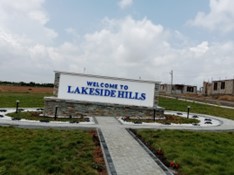The Ghana Real Estate Developers Association (GREDA), the umbrella body of property developers, wants government to revise its affordable housing approach to its members to handle state-sponsored housing projects.
It said the state’s failure to deliver any meaningful affordable housing over the years can be attributed to the current approach whereby government is directly involved in developing such projects. GREDA bemoaned that if when government decides to seek a private developer, it usually partners foreign ones at the expense of local developers.
For the state-sponsored affordable housing agenda to deliver on the promise of providing quality and affordable housing to low income-earning workers, Executive Secretary-GREDA, Sammy Amegayibor stressed, government must play a facilitation role for the private players to deliver instead of competing with them.
“Government’s role in affordable housing must be the facilitation. GREDA believes that government must strongly remove itself from direct involvement in the delivery of housing and facilitate the private sector by fixing the land acquisition bottlenecks, access to funding and basic infrastructure, among others.
“State organisations are either confused or not consulting properly. Most of the time we only get to hear in the news that government has secured foreign partners without any consultation with local players; and when they decide to consult GREDA after the engagement, nothing we suggest is taken into consideration.
“Local players like Lakeside Estate and the other big brands have proven several times that they are capable of delivering 5,000 to 20,000 housing units with state-of-the-art facilities within a short period of time. So, it’s beyond imagination why government is still ignoring us the local developers,” he said.
He added that the quality of projects being developed by local players and the pricing points compared with what government is producing is a clear indication government has failed to deliver a single affordable housing project.
Therefore, he is urging government to partner with local players and take up a facilitation role by granting tax waivers, input incentives, provision of land or other key requirements for the private developers to deliver the main infrastructure development project at affordable rates for the public.
He made these remarks at the launch of Lakeside Hills housing project, a new lifestyle community developed by Lakeside Estate to deliver over 5,000 homes in phases.
The Lakeside Hills project phase one will cover 200 homes, specifically four-bedroom storey houses. The project is termed a one-stop community that will harness social and community experience through shopping, playing, work and leisure.
Managing Director of Lakeside Estate, Dr. Prince Joseph Ayiku, mentioned that the concept behind the project is to bring meaning to housing and accommodation with more luxury living but at a reasonable price.
“We are faced with a big task of how to create a development with elegance and green environment capable of satisfying the necessary elements of a luxurious family home,” he said.
The development boasts an ultra-modern sports facility designed with the health and fitness of clients in mind. It consists of lawn tennis, basketball and volleyball courts and a football pitch, and also a green area for children’s recreation.
Past state affordable housing projects
GREDA explained that the practice of government providing housing units for citizens and staff of state institutions is not a new phenomenon. It mentioned that before the Fourth Republic, past governments provided similar affordable housing units such as those at Dansoman, Adenta and even the Sakumono Estate developed under first President of the Fourth Republic, Jerry John Rawlings.
He emphasised all those developments were done by locals, but current governments have failed because they decided to bring in foreign partners.
Mr. Amegayibor stressed that commitment has been missing from later governments under the Fourth Republic, as sod-cutting and ceremonial launches are their priority.
“Why is it that we have local developers who are doing so well but you hardly hear that government has approached them to say ‘if your housing units are GH¢150,000, we want to subsidise so you sell it at half that price? We also see government announcing its own affordable projects, as if we are in a competition with them for market share,” he added.










